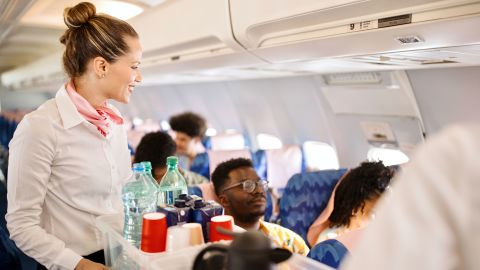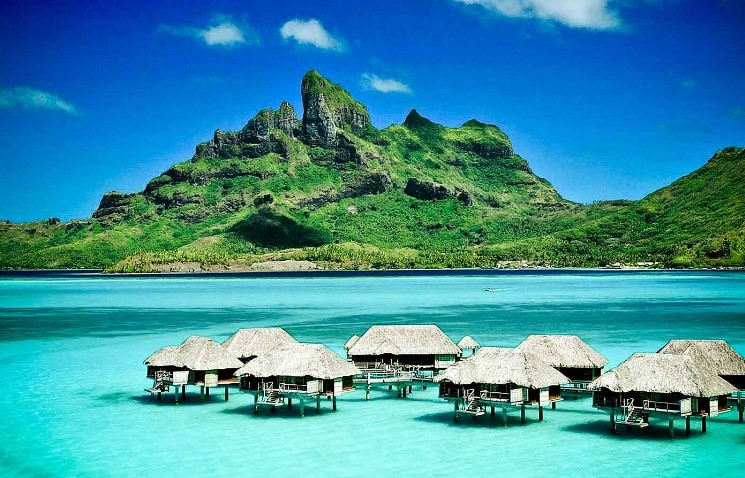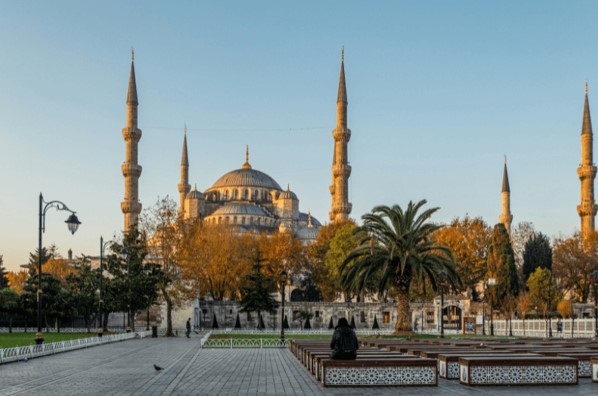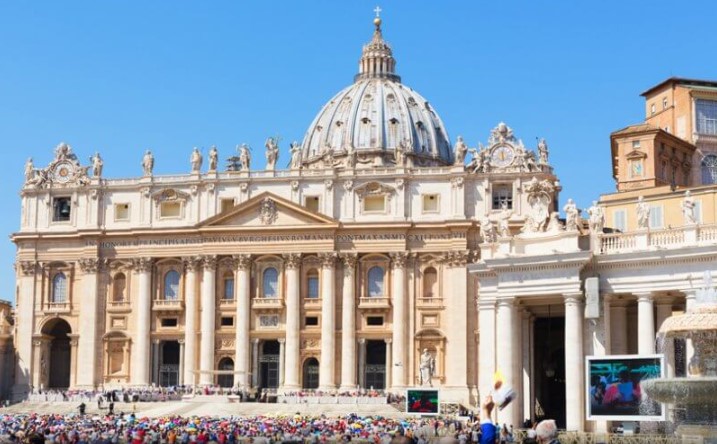Editor’s Note: Regular Ticket is a CNN Journey sequence that spotlights some of the most fascinating subject areas in the travel earth. In February, we’re checking out the persons, areas and journeys operating to make tourism extra sustainable.
CNN
—
Window or aisle? Close to the lavatory or closer to the cockpit? Meal or no food?
When Gilbert Ott was specifying the scheduling of his right away New York to London flight, he found something new in the checklist of food preferences: in addition to selections like a kosher or vegetarian food, there was the decision to skip food items company entirely.
He duly chose no food stuff. It is one thing, he claims, all air travellers need to consider about carrying out.
“I skip foods no subject how I fly,” suggests Ott, who wrote about his practical experience on his weblog, God Help save the Points. “The concept of eating at midnight throws off your full following working day, and I consider there’s credible science that it hurts your capability to get better from jet lag.”
Even though not absolutely everyone is as thrilled with the prospect of skipping foods on board as Ott is, a couple of airways, which include Delta (which Ott was traveling) and Japan Airways (JAL), are using the “thanks but no thanks” possibility.
The jury is nevertheless out on irrespective of whether this will capture on with passengers long term.
Presently, the “skip meal” choice is only accessible to some travellers flying in Delta’s small business course Delta One cabin. A rep from the airline tells CNN that since the software started off past 12 months, about 1,000-1,500 meals are voluntarily declined every month.
That indicates only .3{6932ee47e64f4ce8eedbbd5224581f6531cba18a35225771c06e4f1b3f0d9667} of qualified travellers are opting out. But it’s a exam situation for what airways could do to decrease gas, charges and waste on board.
In accordance to airways, the “no meals” option isn’t just about staying eco-friendly. It is also about personalization.
“We’re always looking for methods to better provide our customers and generate a more customized onboard experience,” states a rep from Delta.
Meals also characterize an possibility for airlines to collect extra consumer facts and possibly much better optimize catering selections.

Critics of meal-skipping packages say that airlines could be “greenwashing” by attempting to conceal a corner-cutting measure beneath the veneer of sustainability.
In 2020, when JAL introduced its meal-skipping possibility, the airline provided fliers a complimentary amenity kit in trade for passing on a food.
One critic, Gary Leff of the website View from the Wing, termed the amenity kit “a token” and argued that the application place also much onus on the passenger to make a improve relatively than the airline itself.
“I suppose it is ethical of Japan Airways to help you save revenue by lowering foodstuff squander, but is it an ethical obligation for the passenger to make their meal selections at minimum 25 hours prior to departure, in other terms, to know regardless of whether their foreseeable future self is going to be hungry?” he wrote.
The JAL plan commenced as a exam on a couple of confined routes. Now, it is readily available for passengers in any course of company on any worldwide flight.
Initially, it was named the “ethical food skip possibility,” but the word “ethical” has been dropped since then. The amenity kit offer you has ended, changed by a partnership with a charity called Table for Two.
The airline claims that for just about every meal foregone, it will donate a smaller sum to this charity, which provides college lunches to youngsters living in poverty. On the other hand, the airline doesn’t specify how considerably income it donates or which faculties or regions are served.
Will travelers really feel fantastic about by themselves if they make a “green” decision? Or will they just come to feel hungry?
“From a customer’s viewpoint, you do sense like you are remaining cheated,” suggests Joaquin Hidalgo, who, together with Meiling Chen, took a deep dive into the world of airplane sector waste for their graduate thesis at MIT in 2022.
“But I consider what they really should be additional informed about, I need to say, is the complexity of the complete issue and definitely what goes into the total supply chain of really acquiring catering into the planes.”
For airways not featuring a “no meal” possibility, there are inquiries about what to do with uneaten airline food items.
A single typical recommendation is donating them to food banks or shelters. But rigid stages of regulation in the airline industry, as well as differing guidelines at airports, imply it is next to extremely hard even if the meals stay sealed shut the total time. The exact polices that avoid travelers from bringing fruit, meat or other foodstuff across borders also occur into perform.
So what does occur to uneaten airline food items? Some airways make it possible for flight attendants to take in untouched business or to start with course meals. But the the vast majority of the time, they are either incinerated or dumped in a landfill.
Hidalgo thinks that the aviation marketplace could go in this identical course as accommodations that give visitor incentives for forgoing daily bedsheet alterations or basically the ecological advantage.
By currently being clear about foodstuff waste and educating vacationers, skipping foods on board could turn into an environmental assertion alternatively than just a personal desire – albeit one undermined by the local climate affect of traveling.
Ott suggests the most frequent question he hears about the meal skip possibility is “what if I improve my head?” Immediately after all, when you’re in a metallic tube in the sky, you can not just pull over and get a snack.
Quite a few airways inventory snacks on board, particularly on extended-haul flights. They’re not usually no cost of charge, but the information you won’t starve midair is beneficial.
If you’re sure of yourself and know what you like, Ott says any customization selection is great.
In Ott’s case, he flies the very same JFK-Heathrow route at minimum as soon as a month and has his travel plan down cold, from sleeping habits to what he stows in his have-on.
He also is aware that he’ll continue to say “no thanks” to plane foods, no issue how tempting it could appear.
“The airline could have foie gras, lobster, and caviar and I’m nevertheless not heading to consume it.”




More Stories
Top 5 Cafe around Sudirman Worth a Visit
KC named one of the best places in America to travel
At Urban Hawker in New York, Singapore street food gets a new HQ